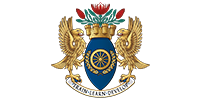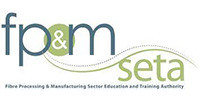Fire fighting training provides first responders with crucial knowledge and skills. Firefighters play a necessary and active role in society in caring for civilians. They need appropriate training to ensure the applicable practical skills are developed and equipment is used correctly. Not only is the practical knowledge critical in the swift response time that saves lives, but the theoretical knowledge obtained in higher-level firefighter courses equips firefighters with the relative SA legislation.
The higher the level of fire fighting training course you take, the better prepared you will be as a firefighter – whether it be for residential fires, car accidents, bushfires or natural disasters. In this article, we walk you through some firefighter courses that are available to take at EMCARE, and the types of skills our accredited training will leave you with.
About EMCARE
EMCARE is a national health and safety training institution. We have 26 years’ worth of experience, providing training since 1997. Our instructors are specialists in their field and have a minimum of 1000 work hours of experience. We have branches across the country, all of which provide essential and beneficial courses. All courses are accredited with the relevant South African legislation and with local authorities.
Fire fighting training is one of the many courses we offer. Other courses include first aid training and safety officer training. Our fire fighting courses in particular have different levels based on the required proficiency you are attempting to acquire. Below are a few of the different kinds of fire fighting training you can do at EMCARE.
Fire Fighting Training: Basic Fire Fighting Course
EMCARE’s basic fire fighting training provides you with the proficiency to identify, contain, prevent and extinguish different types of fires using basic fire fighting equipment. The course intends to train firefighters safely and correctly with the necessary techniques to face an unexpected fire emergency.
The course is taken in one day and the certification upon completion is valid for two years. All that’s needed as a prerequisite is to be able to read and write in English. However, local language instructors can be requested for groups over ten.
Additionally, Facilitators can travel to your premises for groups larger than eight upon request. The prerequisites and accommodations are applied to all our fire fighting training courses.
Amongst some of the modules you will learn in this course in particular include lifting and carrying techniques, fire suppression with hose and hydrant operations, types of fire attacks, emergency plan basics, the burning process, the fire tetrahedron, classes of fire and the different types of PPE you will need and how they function.
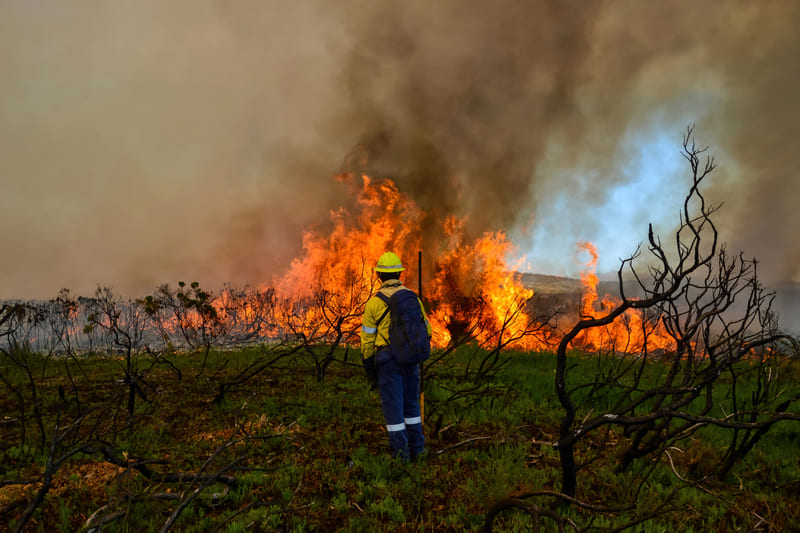
Intermediate Fire Fighting Training
If you are looking for a course that goes more into depth than just the basics – this intermediate fire fighting course is for you. It encompasses the skills taught in our basic training, whilst providing additional facilitation in hand-operated fire fighting equipment.
The course is usually favoured for fire rescues and fire prevention and can be beneficial regardless of your industry. The course is taken over two days, with the second day being located at a particular training location, like local fire department grounds, to illustrate the extensive practical skills, and allow learners to practise and build confidence.
The accredited certification for our Intermediate Fire Fighting training course is also valid for two years. Some of the modules include the practical fire fighting techniques utilising extinguishers, hose reels & hose and hydrant drills, how to care and maintain fire equipment, extinguishing mediums and extinguishers, finally we also offer a course on the importance of fire fighters getting out alive.
Advanced Fire Fighting Training
EMCARE has an array of other fire fighting courses to develop more advanced skills. In particular, there is a fire fighter I and hazmat awareness course that offers both a level 1 and level 2 option. If you are attempting to pursue a career as a professional firefighter – these courses are for you.
Not only are they accredited in South Africa – but they are internationally accredited by IFSAC and based on NFPA 1001: Standard for Fire Fighter Professional Qualifications. The hazmat awareness section of the course is also recognized by government bodies like the Occupational Safety and Health Administration (OSHA), the Environmental Protection Agency (EPA), and the Department of Transportation (DOT).
The duration of the level 1 fire fighting and hazmat training is nine weeks, and level 2 is seven weeks. In these weeks you will receive extensive training that will leave you with all the necessary tactics, communication, knowledge and tools to be a life-saving firefighter.
The Importance Of First Responders
Fire fighters are essential in South Africa due to our climate. In The Western Cape, more than 9500 fires occurred in 2024, over 5 months. Across the country h 18,944 fire incidences were recorded in 2023. This was the highest recorded number of fire incidents compared to the total of previous years.
There have also been recent tragedies where lives were lost due to fire like the 2023 August fire where seventy-seven people were killed in Johannesburg. The fire in Cape Town burnt down infrastructure and an archive library, with historical documents lost in the flames. The increasing risks of fires mean training is more important now than ever before.
First responders protect the loss of more lives and infrastructures, and without their aid – these incidents would look a lot worse. With the help of proficient training, these firefighters were able to make a crucial difference in the saving of lives.
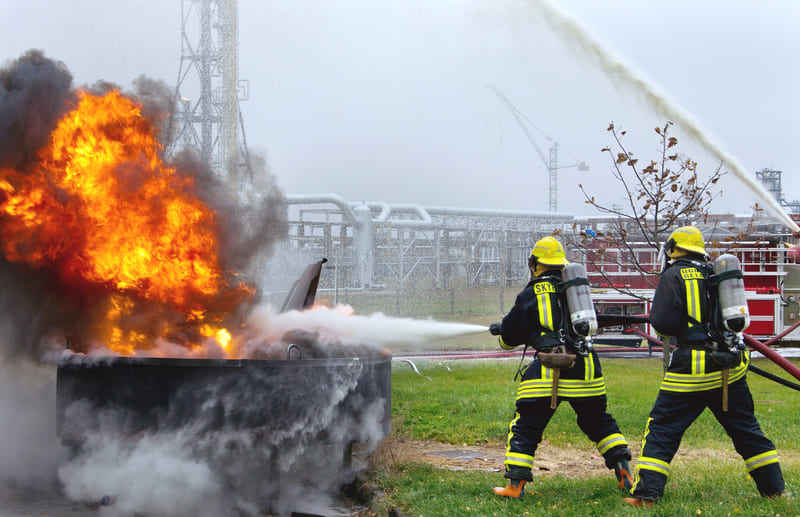
Get In Touch
When training with EMCARE you can trust your ability to aid in fire emergencies like these, and civilians can rest assured you are trained with an accredited health and training company. If you would like to see more information on our fire fighting courses, please view this brief guide. If you are interested in taking one of our fire fighting training courses, you can contact us by filling out a form on our website. We look forward to hearing from you and providing you with crucial and hands-on training in your fire fighting journey.





